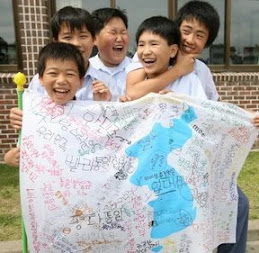
As we mark the 60th anniversary of the outbreak of the Korean War today and pay tribute to all those perished by the conflict, both soldiers and civilians, we yearn and pray for lasting peace. But are we all really doing our parts to ensure that this kind of horrible tragedy does not occur again in the Korean Peninsula, when the war is not even officially over?
It’s hard to believe, but all we have now is an Armistice, a temporary cease-fire, signed on July 27, 1953. So technically, a war can break out at anytime again. The Armistice Agreement called for a peace treaty, but it has not been negotiated nor signed yet. It is long overdue.
This ambiguous and precarious situation has only created and fostered decades of military and political tensions, hostile confrontations, massive arms buildup and arms race (including the nuclear armament issue) and general uncertainties in the Northeast Asia region. All Cold War adversaries participating in the war have made peace with each other – China and the US being the prime example -- except between North Korea and the U.S.
After many years of animosity, South and North Korea have made tremendous progress in reconciliation and rapprochement during 1998 to 2008, opening borders, reuniting separated families, creating joint economic ventures, showing many possibilities of the engagement policy -- but relations have gone sour in recent years, back to the pre-reconciliation period.
Peace in Korea is not maintaining the status quo and just wishing that no new conflict will break out, rather, genuine and truly lasting peace will only be achieved when we install and maintain working mechanisms of peace. In order to avoid an outbreak of another horrible war in Korea, we need to pressure governments to work towards a permanent peace settlement that will ensure peace, security and prosperity for all parties concerned in the region.
Officially ending the Korean War is the first logical step in that process, as a new mindset of peace will likely foster resolution of other contentious issues. That way, soon, we can truly remember the Korean War --- not by its outbreak or the fighting, but by its official end that would exemplify reconciliation, peace and hope to the world.
It’s hard to believe, but all we have now is an Armistice, a temporary cease-fire, signed on July 27, 1953. So technically, a war can break out at anytime again. The Armistice Agreement called for a peace treaty, but it has not been negotiated nor signed yet. It is long overdue.
This ambiguous and precarious situation has only created and fostered decades of military and political tensions, hostile confrontations, massive arms buildup and arms race (including the nuclear armament issue) and general uncertainties in the Northeast Asia region. All Cold War adversaries participating in the war have made peace with each other – China and the US being the prime example -- except between North Korea and the U.S.
After many years of animosity, South and North Korea have made tremendous progress in reconciliation and rapprochement during 1998 to 2008, opening borders, reuniting separated families, creating joint economic ventures, showing many possibilities of the engagement policy -- but relations have gone sour in recent years, back to the pre-reconciliation period.
Peace in Korea is not maintaining the status quo and just wishing that no new conflict will break out, rather, genuine and truly lasting peace will only be achieved when we install and maintain working mechanisms of peace. In order to avoid an outbreak of another horrible war in Korea, we need to pressure governments to work towards a permanent peace settlement that will ensure peace, security and prosperity for all parties concerned in the region.
Officially ending the Korean War is the first logical step in that process, as a new mindset of peace will likely foster resolution of other contentious issues. That way, soon, we can truly remember the Korean War --- not by its outbreak or the fighting, but by its official end that would exemplify reconciliation, peace and hope to the world.





No comments:
Post a Comment